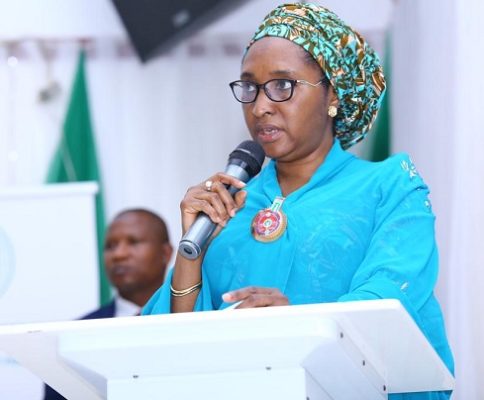
The Nigerian government on Monday approved a new import levy of 0.2 per cent on goods emanating from other African countries for “sustainable financing of Nigeria’s membership subscription in the African Union (AU)”.
The Minister of Finance, Mrs Zainab Ahmed, disclosed this while addressing State House correspondents after the The Federal Executive Council (FEC) meeting presided over by Vice President Yemi Osinbajo at the Presidential Villa, Abuja.
According to her, FEC approved a rate of 0.2 percent as the new import levy on Cost, Insurance and Freigh (CIF) that will be charged on imports coming into Nigeria from AU countries.
She said, however, that there are some exceptions on goods originating outside the territory of member countries.
“Council approval a rate of 0.2 per cent as the new import levy of CIF that will be charged on imports coming to Nigeria but with some exceptions.
“The exceptions include goods originating from outside the territory of member countries that are coming into the country for consumption.
“It also includes goods that are coming for aid and also it includes goods that are originating from non-member countries but are imported through specific financing agreement that ask for such kind of exemptions.
“It also exempts goods that have been ordered and are under importation process before the scheme is announced into effect,” she said.
According to her, the purpose of the new levy is to enable African Union (AU) members pay on a sustainable basis, their subscription to the AU.
Ahmed said that Nigeria knowing that what would accrue from the new levy would be more than what was required as subscription to the AU, that the balance would be put in a special account.
She said that the special account would be used to finance subscriptions in multilateral organisations such as the World Bank, African Development Bank (AfDB), the Islamic Development Bank, and institutions like that.
The minister said that if there was any excess left from that revenue pool, it would be used to finance the budget.
She said the second approval was for the setting up of the Steering Committee to be chaired by the vice president for the design and implementation of a National Single Window.
“The National Single Window is a web portal that will be able to integrate all the government agencies that are implementers in the port system or trading in the port system.
“The trading platform will enable better efficiency of port operations; also, we are projecting that it will significantly increase government revenue.
“The third approval is for the extension of the Central Bank of Nigeria (CBN) intervention that will be used to continue to support the power sector particularly, the generation arm of the power sector.
“This is based on a commitment that we signed into as a country where we gave seven guarantees to the Generating Companies (GenCos) to bridge any gap that they may have after the Nigerian Bulk Electricity Trading (NBET) Plc has settled them,” she said.
On his part, the Minister of Budget and National Planning, Sen. Udo Udoma, said he briefed the FEC on the first quarter of Gross Domestic Product (GDP) performance numbers released by the National Bureau of Statistics (NBS), a parastatal under his ministry.
He said that the GDP indicated continuing economic growth.
According to him, the economy recorded a real GDP growth of 2.01 per cent in the first quarter of 2019.
Udoma said that the growth reflected the strongest first quarter performance in GDP since 2015—a development which he said pleased the council.
“FEC is most encouraged that the economy continues to be driven by the non oil sector which affects most of our population.
“Also, Agriculture grew by 3.17 per cent and this represents the strongest growth in agriculture since the first quarter of 2017.
“FEC is also pleased to note that are improvements in other economic indicators such as the inflation rate which tend to be high during the election period but it has been stable.
“Our trade balance has also remained healthy during the period while our exchange rate to the dollar has also been stable notwithstanding the elections, there has been stability,” he said
The minister said that the council believed that the dividend arising from the peaceful elections and the re-election of President Muhammadu Buhari would lead to a further boost in economic growth.
He said that the country would expect faster growth rate as the incoming cabinet would continue to intensify work on the implementation of the Economic Recovery and Growth Plan.